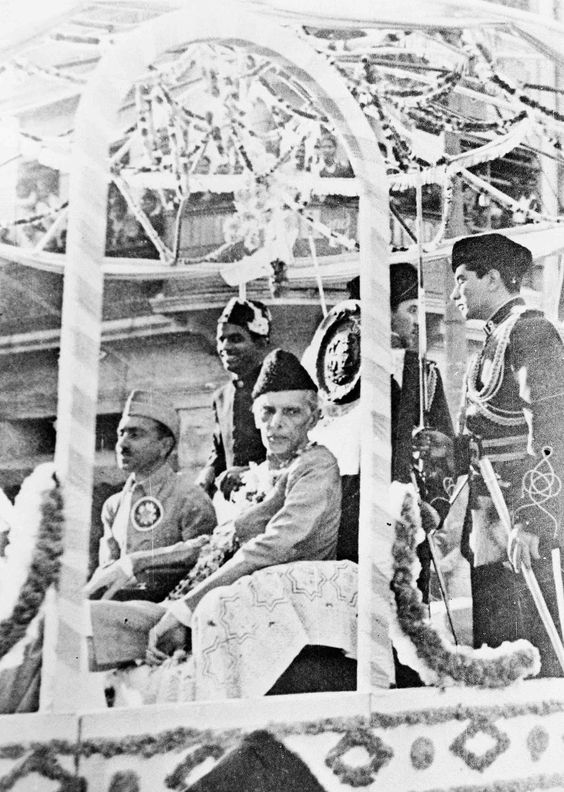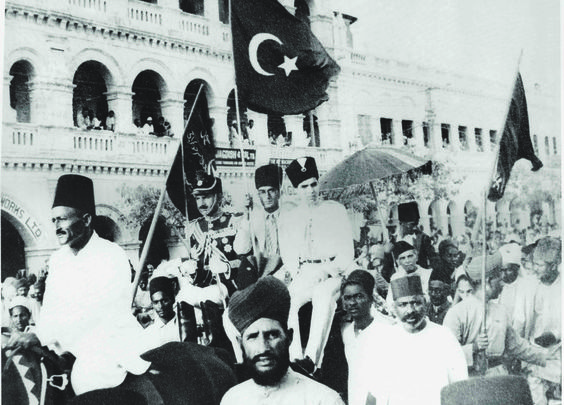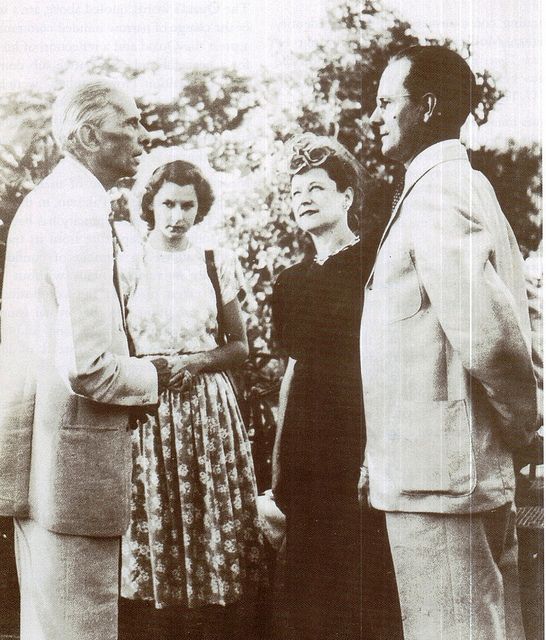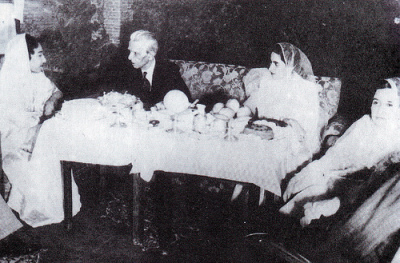A Journey to London

When he arrived in London he rented a modest room in a hotel. He lived in different places before he moved into the house of Mrs. F. E. Page-Drake as a house-guest at 35 Russell Road in Kensington. This house now displays a blue and white ceramic oval saying that the ‘founder of Pakistan stayed here in 1895′.
Mrs. Page- Drake, a widow, took an instant liking to the impeccably dressed well-mannered young man. Her daughter however, had a more keen interest in the handsome Jinnah, who was of the same age of Jinnah. She hinted her intentions but did not get a favorable response. As Fatima reflects, “…he was not the flirtatious type and she could not break through his reserve.”
On March 30, 1895 Jinnah applied to Lincoln’s Inn Council for the alteration of his name the Books of Society from Mahomedalli Jinnahbhai to Mahomed Alli Jinnah, which he anglicized to M.A. Jinnah. This was granted to him in April 1895.
Though he found life in London dreary at first and was unable to accept the cold winters and gray skies, he soon adjusted to those surroundings, quite the opposite of what he was accustomed to in India.

After joining Lincoln’s Inn in June 1893, he developed further interest in politics. He thought the world of politics was ‘glamorous’ and often went to the House of Commons and marveled at the speeches he heard there. Although his father was furious when he learnt of Jinnah’s change in plan regarding his career, there was little he could do to alter what his son had made his mind up for. At that point in life Jinnah was totally alone in his decisions, with no moral support from his father or any help from Sir Frederick. He was left with his chosen course of action without a pillar of support to fall back upon. It would not be the only time in his life when he would be isolated in a difficult position. But without hesitation he set off on his chosen task and managed to succeed
























